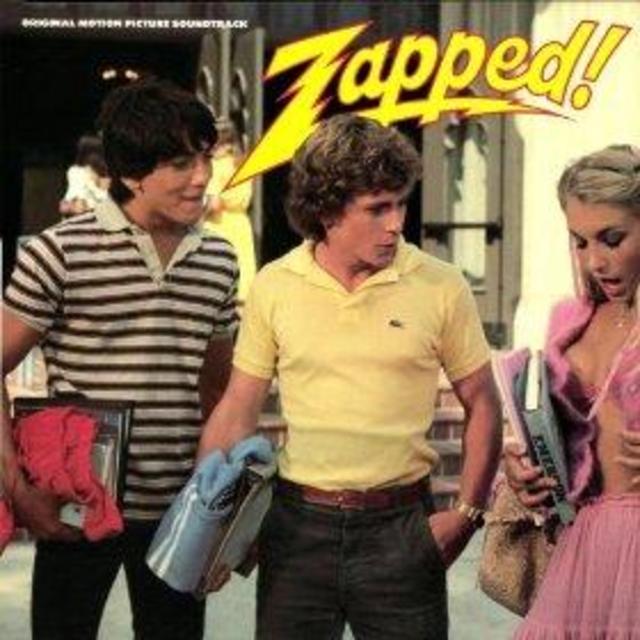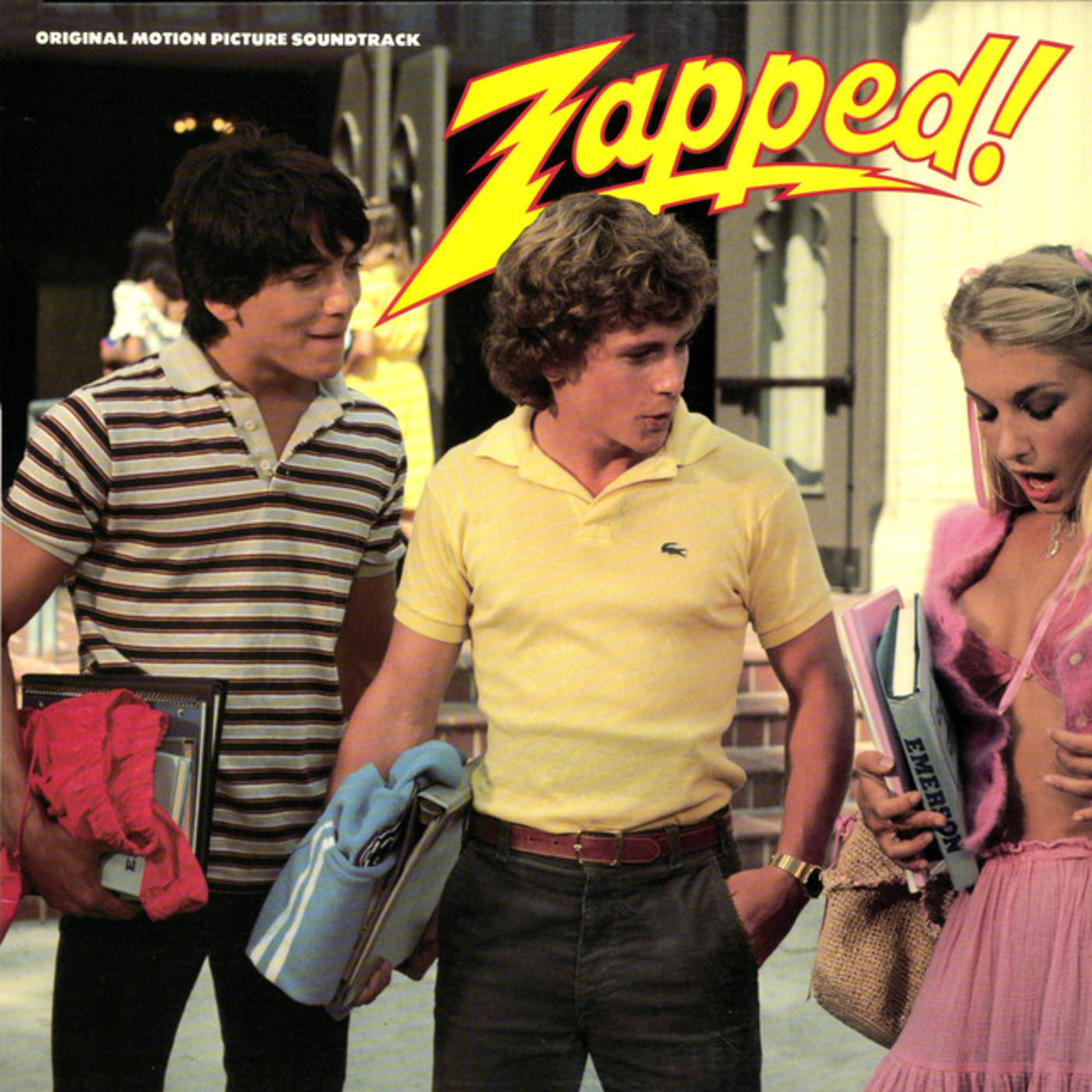Get Zapped! Again

Take a trip with us back through the mists of time, back to an era when the names “Scott Baio” and “Willie Aames” could still get a film green-lit...well, you know, at least as long as it was a teenage sex romp about a high-school science whiz whose misbegotten lab experiment results in him obtaining telekinetic abilities.
If you lived through the ‘80s and had cable, it was virtually impossible to avoid seeing Zapped! at least once (but more likely half a dozen times), but unlike so many other teen comedies released during the decade, the soundtrack didn’t result in a great deal of chart action, and it quickly slipped into obscurity...until now.
Well, actually, we’re just trying to be dramatic. It’s still pretty darned obscure. But now that it’s been added to Rhino’s digital catalog, surely it’s at least worth a casual reappraisal.
(By the way, just as a word of warning, the title of this piece should not in any way, shape, or form be taken to suggest that we endorse the purchase or even the viewing of the sub-par Zapped! sequel, 1990’s Zapped Again! We’ve taken that bullet for you, and as a result, we’ve been left with a gaping psychological wound that may never heal. Not even the holy guest-star trifecta of Lyle Alzado, Linda Blair, and Karen Black is enough for us to recommend it.)
If you had to theorize as to why the Zapped! soundtrack has lingered in obscurity, it’s probably because there’s really only one name amongst the track listing that will immediately cause most music fans to say, “Oh, hey, I know that guy,” and that’s Rick Derringer. Possibly not coincidentally, Derringer’s contribution, “Just for Fun,” is one of the most memorable of the bunch, and it’s followed by the equally catchy “Tryin’ To Kill a Saturday Night,” by the Keane Brothers, which opens the film. Weirdly, though, it does not open the soundtrack, which instead begins with David Pomeranz’s “Got to Believe in Magic,” thereby starting the proceedings in the schmaltziest manner possible. (Not that it’s a bad song, but it’s not exactly one with its eye on kicking things into gear.)
Pomeranz, who’s probably best known to ‘80s aficionados for singing the theme to Perfect Strangers (“Nothing’s Gonna Stop Us Now”), actually scores two tracks on the soundtrack, the other being “King & Queen of Hearts.” In between the two, we have the somewhat power-poppy “Shoot the Moon,” by the Plain Janes, who turn up again immediately after Pomeranz’s second track to contribute “Ready or Not,” which starts off in surprisingly epic fashion before quickly descending into a song which one could easily imagine Barry Manilow crooning, and from there it’s on to Derringer and the Keane Brothers.
As for the rest of the record, the Twisters’ “Star Spangled Baby” is a pleasant but generic pop-rock song, and while the closing track, Devinstated’s “This Power of Ours,” is a bit better, it’s impossible to look at a title like that and not imagine a conversation where the band was told, “Okay, we need another love song by tomorrow, we’re thinking it should probably have something to do with the fact that Chachi’s got super mind powers, and you’ve only got ‘til tomorrow to turn something in. So get cracking!”
Somewhat surprisingly, the album’s two instrumentals are among the highlights...or maybe it’s not all that surprising, given who was responsible for them: “Bomp Me,” was the work of the Greg Mathieson Project, led by one of the top session keyboardists of the ‘80s after featuring guitar work from Steve Lukather, while “Updike’s Theme,” while not actually credited as such, was actually co-written and performed by Joe Esposito, otherwise known as the voice behind The Karate Kid’s epic montage anthem, “You’re The Best.”
Have we piqued your curiosity about this musical artifact? If so, the Wayback Machine – otherwise known as Spotify – is primed and ready for you to give it a listen!

